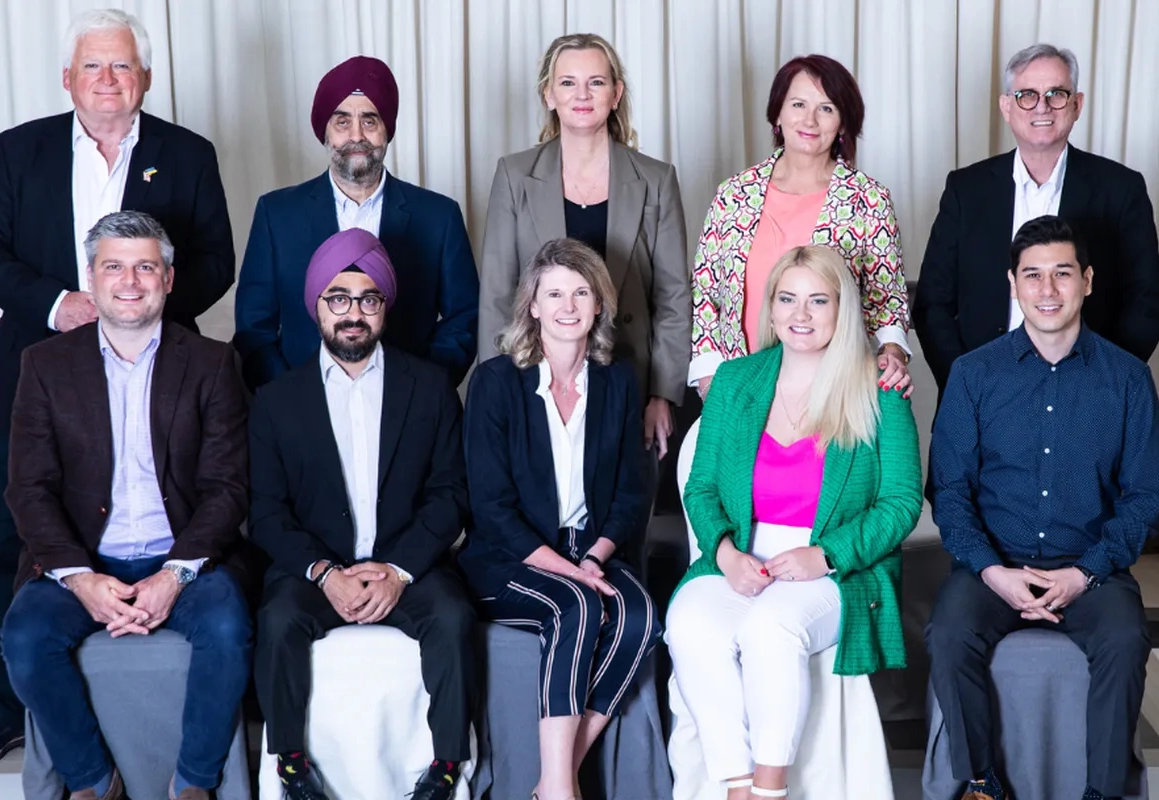The support of a family is unparalleled in terms of the comfort it can provide in whatever situation a person may find themselves in. A very special and meaningful place to have this support is in business if you are lucky enough to run your business with family. But of course, like any setup with family and the deep trust involved, it is not without its trials and difficulties. How do you navigate this and what is the formula for success? We spoke to some owners of family businesses from our global network to get their take on being involved in a family business and how to drive and maintain continued success despite the many hurdles that can occur.
Different ages come with different/unique perspectives
Steven McKinney and Bryan McKinney, Kestria South Korea:
‘In organizations where multi-generations work together, different and unique perspectives tend to arise. Changes to the approach of the business are welcomed, not discouraged. Although methods may vary, core values remain. We must periodically prune our organizations’ services and practices to keep them healthy and viable, keeping the items that work and replacing or improving those that need overhauling. “Without the ability to evolve things, people stay stuck, never becoming who they are meant to be, never accomplishing all that their talents and abilities should afford them.” -Dr. Henry Cloud. The same thing can be said about our organizations.’
Strong Focus on Relationships
Richard Boot and James Boot, Kestria UK:
‘Almost by definition, the family or certainly key members of the family are usually very closely involved in the business and senior external appointments are of great personal significance to them. The owners, therefore, need to have trust in their advisers and that is typically built on strong personal relationships and over a period of time.
As with most clients, they need to have empathy with and respect their advisers and that comes from the adviser clearly demonstrating they understand the ‘agenda’: what the family and the business are seeking to achieve, what the ambition is for both the business and for the employees and what the candidate is really expected to deliver.
Understanding the culture and values is important in every assignment; with private family companies there is often a ‘closeness’ and involvement which brings a slightly different focus to these ‘soft issues’. Appreciating and responding to this close involvement is what will help create the right professional relationship, particularly where the appointment is a ‘game changer’ such as the first external appointment or a new role in the business.’
Cohesion, longevity, and success
Gurdeep Hora and Manveet Hora, Kestria India:
Gurdeep Hora: ‘A successful family enterprise is characterized by committed and unified leadership, trust, authenticity, and solidity. This shared vision imbues a sense of trust and loyalty amongst the family and employees alike. Synergy Consultants (Kestria India) was established in 1989 and we have observed the transition of numerous family-owned businesses to successful professional enterprises. As the next generation of family integrates seamlessly into the business, family-run enterprises transition smoothly and accept the evolution of new and exceptional initiatives. The gems of cumulative experience and knowledge are smoothly transitioned to the next generation who can integrate these with their own vision and strengths.’
Manveet Hora: ‘Cohesiveness in a family is extremely important to ensure the long-term survival and success of the business – it builds internal pride and increases customer allegiance. Family factors such as trust, loyalty, and forbearance are usually less available to non-family businesses and therefore seen as a source of sustainable competitive advantage. Family-run businesses need to strategically focus on longevity, by building a long-term vision, defining an optimal structure, and prioritizing timely conflict recognition and resolution. Numerous studies have established that due to many factors, the younger generation today is in general, not as drawn to family-run businesses as their parents. As a result, many of these companies are moving from a family-managed to a family-owned model with professional management.
As their leadership needs evolve, family-owned businesses must attract and retain executives who are committed to growing the company’s legacy, with recruiting partners who understand the nuances of attracting top talent during times of transition, proactive succession planning, long-term incentive plans, and cultural fit.’
Flexibility
Eimhin O’Driscoll and Niamh O’Driscoll, Kestria Ireland:
‘My father Pat and I were founding Directors of Fastnet (Kestria Ireland) in 1999. Éimhín and I are sisters and have been business partners for 20 years+. We are very proud of the company we have built together. In a world where the pace of change is exponential, every organization needs to build a culture of flexibility and agility to survive and thrive. The traditional strengths of family enterprises including values-centric decision-making, stakeholder loyalty, and their long-term outlook are all solid foundations on which to build a successful future. The ‘spark’, passion and entrepreneurial spirit that is at the heart of every family business creates a distinct competitive advantage and the lack of hierarchy creates an environment in which adaptability and the ability to pivot and change are in our DNA.
Strategic decisions can be made efficiently and implemented speedily. While Fastnet Executive is rooted in the family we are so fortunate to have an exceptional team with shared values, a commitment to going above and beyond, and a flexible, people-centric approach to work and life which is so important in the world we live in today.’
Trust and long-term commitment
Iluta Gaile and Krista Kristiana Ziedina, Kestria Latvia:
‘The core business relationship is mainly built on trust and loyalty which are the key to long-term commitment! Family businesses have a more competitive advantage over other businesses. “The family business is based on REAL trust and deep loyalty – trust that you can feel in your spinal cord! And this strong trust provides stability – knowing that the family business you’re building for future generations encourages long-term thinking. The family business is a great example of long-term business succession – strong personal bonds mean you and your family members are likely to stick together in hard times and show the determination and loyalty needed for success in business. I am so grateful that my daughter was interested in working alongside me in my company and that grew into successful cooperation. The incredible connection and mutual respect are undeniable in our family business. We inspire and learn from each other, and we are an example of how Gen Z and Gen X generations can cooperate effectively because we are family!’
The Kestria family is not related by blood but brought together by strong business expertise, shared ethical value systems and a solid global network. Our trust is established and maintained through consistent good results and deep connections honed through uniting our clients with top-level leaders for almost three decades. We have built lasting relationships through connecting companies with the right and empowering them to create and maintain their own enduring relationships.

